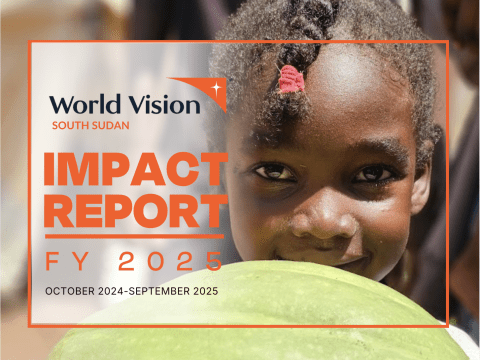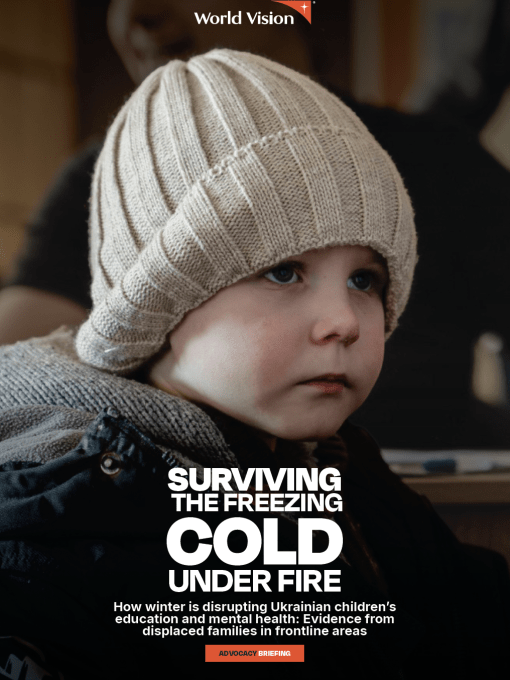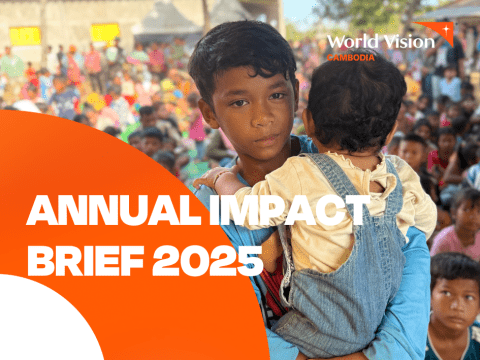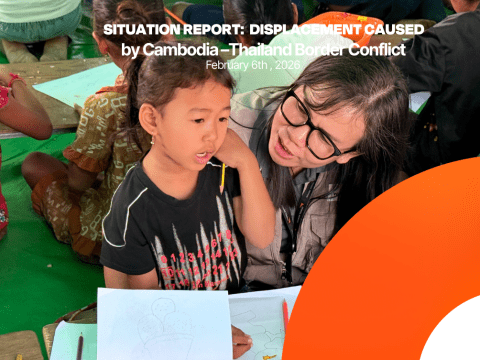South Sudan - October 2019 Situation Report
Download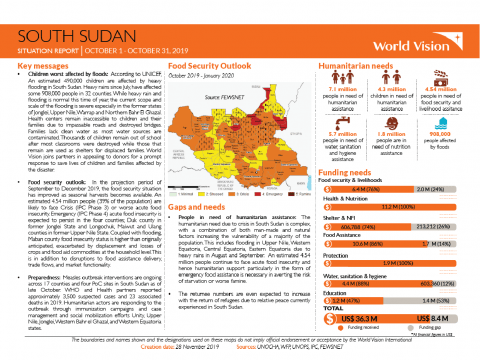
- Children worst affected by floods: According to UNICEF, An estimated 490,000 children are affected by heavy flooding in South Sudan. Heavy rains since July, have affected some 908,000 people in 32 counties. While heavy rain and flooding is normal this time of year, the current scope and scale of the flooding is severe especially in the former states of Jonglei, Upper Nile, Warrap and Northern Bahr El Ghazal. Health centers remain inaccessible to children and their families due to impassable roads and destroyed bridges. Families lack clean water as most water sources are contaminated. Thousands of children remain out of school after most classrooms were destroyed while those that remain are used as shelters for displaced families. World Vision joins partners in appealing to donors for a prompt response to save lives of children and families affected by the disaster.
- Food security outlook: In the projection period of September to December 2019, the food security situation has improved as seasonal harvests becomes available. An estimated 4.54 million people (39% of the population) are likely to face Crisis (IPC Phase 3) or worse acute food insecurity. Emergency (IPC Phase 4) acute food insecurity is expected to persist in the four counties; Duk county in former Jonglei State and Longochuk, Maiwut and Ulang counties in former Upper Nile State. Coupled with flooding, Maban county food insecurity status is higher than originally anticipated, exacerbated by displacement and losses of crops and food aid commodities at the household level. This is in addition to disruptions to food assistance delivery, trade flows, and market functionality.
- Preparedness: Measles outbreak interventions are ongoing across 17 counties and four PoC sites in South Sudan as of late October. WHO and Health partners reported approximately 3,500 suspected cases and 23 associated deaths in 2019. Humanitarian actors are responding to the outbreak through immunization campaigns and case management and social mobilization efforts Unity, Upper Nile, Jonglei, Western Bahr el Ghazal, and Western Equatoria states.
Share
